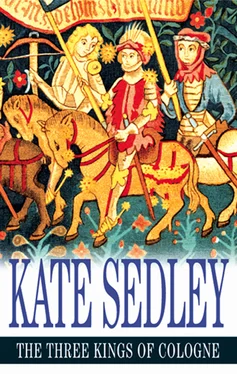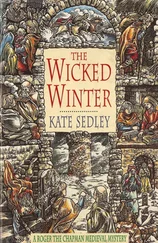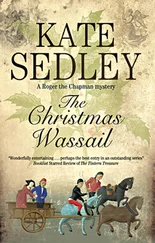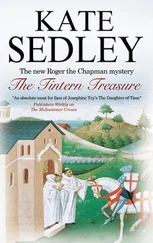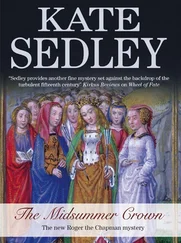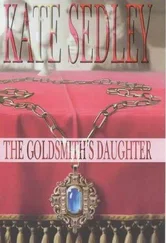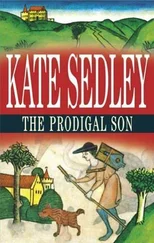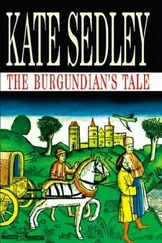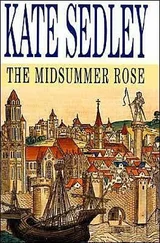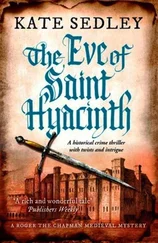Kate Sedley - The Three Kings of Cologne
Здесь есть возможность читать онлайн «Kate Sedley - The Three Kings of Cologne» весь текст электронной книги совершенно бесплатно (целиком полную версию без сокращений). В некоторых случаях можно слушать аудио, скачать через торрент в формате fb2 и присутствует краткое содержание. Жанр: Исторический детектив, на английском языке. Описание произведения, (предисловие) а так же отзывы посетителей доступны на портале библиотеки ЛибКат.
- Название:The Three Kings of Cologne
- Автор:
- Жанр:
- Год:неизвестен
- ISBN:нет данных
- Рейтинг книги:5 / 5. Голосов: 1
-
Избранное:Добавить в избранное
- Отзывы:
-
Ваша оценка:
- 100
- 1
- 2
- 3
- 4
- 5
The Three Kings of Cologne: краткое содержание, описание и аннотация
Предлагаем к чтению аннотацию, описание, краткое содержание или предисловие (зависит от того, что написал сам автор книги «The Three Kings of Cologne»). Если вы не нашли необходимую информацию о книге — напишите в комментариях, мы постараемся отыскать её.
The Three Kings of Cologne — читать онлайн бесплатно полную книгу (весь текст) целиком
Ниже представлен текст книги, разбитый по страницам. Система сохранения места последней прочитанной страницы, позволяет с удобством читать онлайн бесплатно книгу «The Three Kings of Cologne», без необходимости каждый раз заново искать на чём Вы остановились. Поставьте закладку, и сможете в любой момент перейти на страницу, на которой закончили чтение.
Интервал:
Закладка:
Sister Walburga gave her thin-lipped smile. ‘Easier said than done, my friend. No one knew their names. You find that incredible?’ I certainly did, and let it show. A note of defiance entered my companion’s voice as she continued, ‘So do I — now! Now that I can look back on events from a distance and with my present awareness of what really became of Isabella. But the sad fact is that her parents’ knowledge of these clandestine meetings came to them second-hand, through neighbours’ gossip or anonymous notes slipped under their door or from well-meaning busybodies who thought they ought to know, and so on and so on. Whenever Jonathan or Amorette tried to find out the truth of the rumours, Isabella flatly refused to answer their questions. She vowed it was all malicious lies, an attempt to tarnish her good name by people who were jealous of her. She swore there were no men. When she went out riding, she did so alone. My cousin didn’t believe her, of course. The stories were too rife. But what could he or Amorette do in the face of such flat denials? And now, I really must return to my duties.’ Sister Walburga moved back to the door, laying her hand on the latch. ‘I have already spent far too much time talking to you. Go and see my cousin at the Gaunts’ Hospital, that’s my advice. He will be able to explain matters to you far better than I can. I was at best an observer.’
I felt this remark to be disingenuous, but said nothing. Sister Walburga gave me a brief inclination of the head and was gone.
Four
The Gaunts’ Hospital, as I have already explained in one of my earlier chronicles, stands close by Saint Augustine’s Abbey, in the lee of the steeply rising ground to the north of the city. (A series of heart-stopping hills leads eventually to the plateau above the great gorge — whose bed is that of the River Avon — and the manor of Clifton.) The hospital was founded in the thirteenth century by Maurice and Henry de Gaunt, and further endowed by their nephew, Robert de Gourney. Its function is to nurse the sick, feed the poor and educate children, and is large enough to accommodate twenty to thirty inmates. Run by a master and three chaplains, all belonging to the order of the Bons-Hommes, it comprises the church of Saint Mark, surrounded by hall, kitchen, buttery, dormitories, outbuildings, a pigeon loft and an orchard that, to the east, abuts the land of the Carmelite Friars (whose huge cistern has supplied Bristol with water for several centuries, piped as it is across the Frome Bridge to the conduit by Saint John-on-the-Arch).
From Steep Street, I approached the hospital along Frog Lane. The apple trees, already in bud, and soon to be a sea of foaming blossom, raised their tossing heads above the grey stone wall, their branches whispering to the tune of a gentle breeze blowing up from the river.
The porter made no demur when I expressed a wish to speak to Jonathan Linkinhorne, and conducted me to the main hall, where most of the elderly residents were to be found at that time of day. A fire, far too hot for me, burned on the hearth and spread its warmth around the stone benches that lined the other three walls. There were also stools and trestle tables scattered about to provide more comfortable seating and arm support for the frail and very old. The man pointed out to me as Master Linkinhorne was sitting at a trestle as close to the fire as he could get, his chin propped in his cupped hands, staring sightlessly at a half-full beaker of ale in front of him.
Before I could approach my quarry, however, I was intercepted by two old acquaintances, Miles Huckbody and Henry Dando. Like all old people herded together with no one but their own generation for company they were desperate for news of the wider world and the stimulation of younger minds.
‘What you doing here, Roger?’ Miles asked, his long, wrinkled face alight with curiosity beneath the white hair. He slipped one bony hand into the crook of my elbow and stroked the sleeve of my jerkin with the other. ‘You remember Henry, here,’ he went on, when his friend’s attempts to attract my attention became too importunate to ignore.
‘Master Dando,’ I said, smiling into the faded, rheumy blue eyes and wishing their owner at the devil.
Miles Huckbody let out a squawk of protest. ‘You’ve no cause to go a-“master”-ing him, Chapman. Henry ain’t of any importance.’
‘I’m just naturally polite,’ I said; a claim that provoked another cackle of derision from my companion.
‘Who you come to see?’ Miles demanded. ‘Is it one of us?’ He stared up at me hopefully.
‘I’m afraid not,’ I apologized. ‘I want to speak to Master Linkinhorne.’ And I nodded towards the silent figure, hunched over his drink.
‘Oh, ’im!’ Henry Dando sniffed. ‘You won’t get a lot of joy outta him. Miserable old sod, ’e is. Don’t talk to anyone much.’
This was bad news. But then I asked myself what would Jonathan Linkinhorne — provided he was anything like his cousin, Sister Walburga — have in common with Miles Huckbody and Henry Dando, with their constant stream of old men’s chatter? Besides which, at present, he must be suffering from a deep sense of shock, and possibly self-reproach, to think that his daughter had been dead, brutally murdered, for all these years when he had thought her alive somewhere, well and happy.
‘You’re here about that body they dug up in the nuns’ graveyard, ain’t you?’ Miles poked me sharply in the ribs. ‘Jonathan’s daughter, weren’t it? That Sergeant Manifold was here yesterday and spoke to him in private. Old Linkinhorne, he didn’t tell us nothing. But gossip soon leaks out in a place like this. Bound to.’
‘You can’t keep nothing secret in here,’ Henry Dando confirmed, trying to look regretful and failing miserably.
I guessed that such a morsel of news had generated enough excitement to keep the Gaunts’ inhabitants in a ferment for months to come.
There was no point in denying my mission. ‘You’re right. I do want to speak to Master Linkinhorne about his daughter,’ I agreed, disengaging my arm from Miles’s clawlike grip. ‘But alone,’ I added firmly. ‘I’ll wish you both good-day. It’s been a pleasure seeing you again.’ (As I’ve remarked before, we all have to tell untruths from time to time.)
‘We’ll introduce you,’ Miles offered.
‘He knows us, you see,’ Henry added.
‘I’ll introduce myself,’ I said in a tone of voice that left them in no doubt that I was refusing their very kind offices.
They sheered off, muttering together in offended whispers. I took no notice, seating myself at the opposite side of the trestle to Jonathan Linkinhorne and folding my arms in front of me. He glanced up briefly, registered the fact that my face was unfamiliar and looked down again at his beaker, but without making any serious attempt to finish his ale.
‘Master Linkinhorne,’ I said.
He raised his head once more, this time frowning. ‘Do I know you?’
In his youth, he must have been a heavy-jowled man, but the flesh now hung slackly around the jawline, running into his neck and making him appear almost chinless. Like Henry Dando, indeed like a lot of blue-eyed people, the colour of the irises had faded with age, but in his case they were also milky, hinting at incipient blindness. He had pushed back his hood to reveal a bald head, with a few wisps and tufts of white hair growing low down around the ears. I suspected that he had once been an imposing, powerfully built man who found the indignities of ageing more trying than most. When he spoke, his voice rasped with resentment.
I had a sudden vision of him in his middle years; a man used to being in command, used to being obeyed by everyone with whom he came into contact, lording it over wife and servants, confident in all his dealings with the world around him. Then, suddenly, he had found himself confronting a will-o’-the-wisp of a girl, lovely to look at, physically fragile, but with a will of iron, a determination to dominate matched only by his own. He, who all his adult life had known nothing but subservience, would have been confused, bedazzled by this glorious, unpredictable creature he had fathered and blinded by his love …
Читать дальшеИнтервал:
Закладка:
Похожие книги на «The Three Kings of Cologne»
Представляем Вашему вниманию похожие книги на «The Three Kings of Cologne» списком для выбора. Мы отобрали схожую по названию и смыслу литературу в надежде предоставить читателям больше вариантов отыскать новые, интересные, ещё непрочитанные произведения.
Обсуждение, отзывы о книге «The Three Kings of Cologne» и просто собственные мнения читателей. Оставьте ваши комментарии, напишите, что Вы думаете о произведении, его смысле или главных героях. Укажите что конкретно понравилось, а что нет, и почему Вы так считаете.
